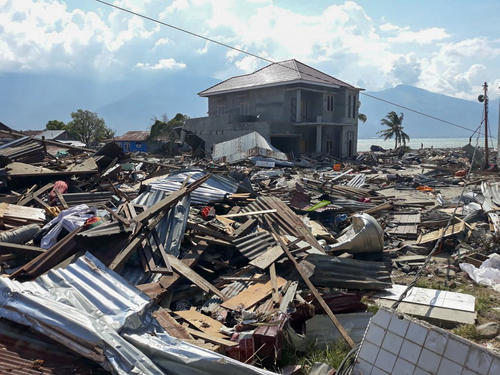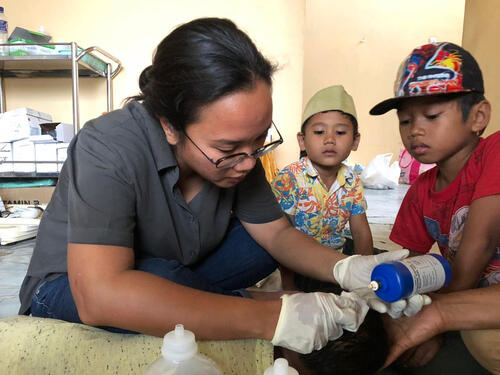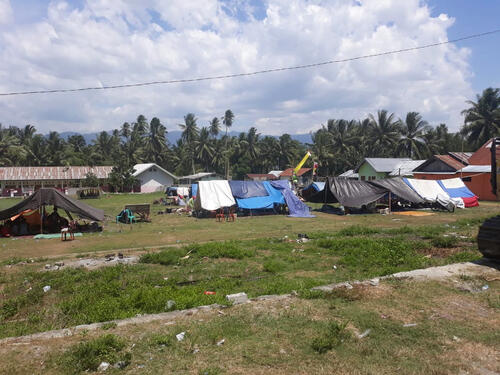An MSF team from Indonesia – composed of medical, logistics, and water and sanitation specialists – has assessed the situation and the medical and humanitarian needs in areas of Central Sulawesi affected by the earthquake and tsunami that hit the island on 28 September and is helping local health centres and communities get back on their feet.
The government response is concentrated mainly around the tsunami-hit Palu City coastline and Petobo to the south, which was affected by liquefaction (a phenomenon where soil loses strength or density and turns into mud, causing landslides).
In collaboration with the Ministry of Heath, we therefore concentrated our efforts on more remote, rural areas around the sub-district of South Dolo, Sigi, and further north along the west coast of Donggala district, which is home to over 50,000 people.
“Until today, we still see patients with closed fractures due to the impact of the earthquake,” says Dr Rangi Wirantika. “We have been working closely with the health agency, and our mobile clinic travels every day to provide health services to these patients.”

Basic healthcare
As services in Palu City slowly resume – with shops and restaurants starting to re-open, electricity restored, and all hospitals functioning – the main priority now is to provide support to health centres in these remote areas, to help them resume basic healthcare activities and ensure the prevention of epidemics such as diarrhoea, skin diseases and measles.
In these first few days, our team, working with the local community, managed to access the medical stock in a damaged clinic and transferred it to a neighbouring house in order to restart medical consultations and the distribution of medication.
Restarting routine vaccinations, data collection and epidemiological surveillance for different diseases will also be part of the support we provide.
Two local psychologists will soon join the team to provide mental healthcare to people in these remote areas, and to local medical staff.

Safe water
Temporary structures for consultations and maternity services will be installed, and access to sufficient clean water.
"The affected communities have limited access to clean water, which is important to reduce the risk of possible epidemics. In some areas, people have to walk up to two kilometres just to get water," water and sanitation specialist Timothius SP Benu explains.
In the communities, the main goal is therefore to ensure that the population has access to safe water, by repairing or cleaning the existing sources (i.e., hand pump or wells) or setting up temporary solutions such as water tanks and water treatment systems.
While conducting these activities, the team will continue to assess the needs in the surrounding areas and respond accordingly.



